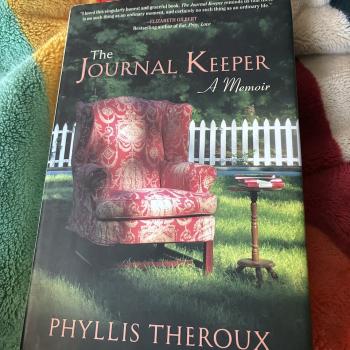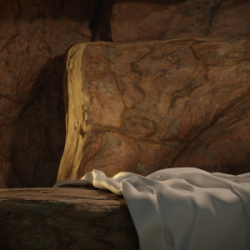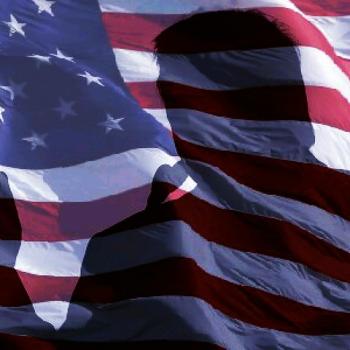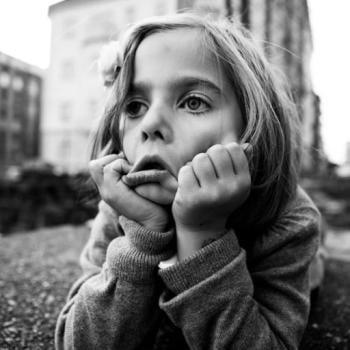It has been a summer of unraveling: wars in Gaza, Iraq, Syria, the Ukraine; the shooting of an unarmed young black man in the United States; the suicide of beloved actor Robin Williams, which in some ways gave us a way to explore our own inner despair and how close we often feel to the edge of things. Even as I write this litany, I am sure I have forgotten others, and certainly there are the smaller issues of daily life wherever we live—the uncertainties of money, health, and love; trust broken; decisions based on the bottom line rather than human dignity.
If your spirits haven't been challenged, undone, or unraveled, then you are not paying attention.
Sometimes I click on my Facebook newsfeed, and there, sitting mockingly among the YouTube videos and the advertisements, are images of children torn to pieces and I just sob. I am mocked by the dissonance, the absurdity, and my own sense of helplessness. How do I go to the farmer's market each Saturday and roast my free-range chicken with organic broccoli? How do I lie down in my comfortable bed at night in my home free from violence and the ravages of war?
We do what people who search and seek have been doing for thousands of years: we find new ways to live. We awaken from the numbness; we challenge the status quo. We do it right in our little corners of the world.
It is not even a question of awareness, of posting one more insightful commentary, of sharing one more petition. These things are, of course, good and necessary, but they are never enough.
The heart wants action, to be embodied in daily small kindnesses.
There is an ancient wisdom story from the desert fathers: "Do not feed the heart what does not nourish the heart."
We need to stop feeding the consumer machine, which tells us our worth by the newest gadget we have purchased, only to throw the last one in an ever-growing landfill. We need to stop perpetuating the cycles of violence by denouncing war but still letting our minds offer relentless judgments about the people we encounter every day.
We go off to our metaphorical deserts and wildernesses to really reevaluate our priorities.
The heart sees how it is all connected.
We nourish ourselves by finding others who also want to live on the wild edges of the empire—the dominant consciousness—and imagine something different together. This tribe includes kindred souls, maybe even just one or two, along with our spiritual ancestors, the desert mothers and fathers, the mystics and monks who said there is a better way.
We need to feed the heart with silence.
I was so struck, and a bit overwhelmed, by the multitude of responses to Robin Williams' suicide. Everyone seemed to have something to say; everyone was posting more and more words to fill the great mystery of what had happened.
We don't come to understand the great suffering of the world by thinking our way through it. Discussion is good, and conversations and reflection are worthy. And yet, what nourishes the heart most are the moments of radical humility when we step beyond words and into the space between. We listen. We tend. We wait.
The heart endures.
Amma Theodora, one of the desert mothers, shares this story:
Let us strive to enter by the narrow gate. Just as the trees, if they have not stood before the winter's storms cannot bear fruit, so it is with us; this present age is a storm and it is only through many trials and temptations that we can obtain an inheritance in the kingdom of heaven.
Near Tucson in the southwest U.S., there is a biosphere built twenty years ago and filled with trees and plants, but because it is sealed from the outside atmosphere, it is sheltered entirely from wind. These trees have grown weak and spindly. The winds create strength through resistance and help to spread the seeds. Endurance is staying put in the face of great struggle, it is the wind strengthening our foundation. Endurance means we have looked at suffering in the eye and not run away.
The heart is nourished through tears.
Staying with the suffering of the world inevitably leads to grief. We need to rage together, lament the terrible losses of lives and dignity, of our own sense of security. Rather than numb ourselves or busy ourselves against the onslaught of despair, tears are the path toward softening. Tears remind us of our vulnerability, they call us to yield our desire to control things and be with what is.
Many of us live in fear of the cultural breakdown happening right before our eyes, and yet in some ways, what we most need is a breaking apart before a coming together can happen.
The heart is nourished by love.
In that place of lament, of unraveling and undoing, our hearts can become more tender and vulnerable, more open and spacious. We can choose to respond out of cynicism and harden ourselves toward love and affection or we can choose otherwise.





